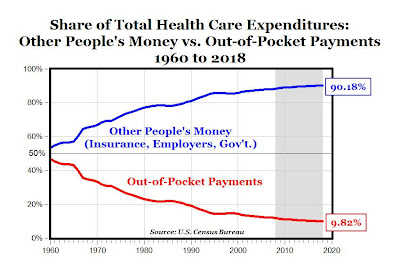Hi
Let's at least accept that there is a problem with the cost structure. I am not sure there is much argument there. The problem thus becomes to determine where we can cut cost without cutting the patient ..err .. the quality of care ... I would for example like to understand why an MRI cost up to $8,000. What is the cost of an MRI machine and how much does it really cost to operate it? when such a routine and common procedure cost that much, it is no wonder that it is very, very difficult to finance Universal Health Care. The question remain however: What do we do with the increasing number of people who can't afford health care because of circumstances most often lack of work or lack of coverage? The people with lower revenues and with jobs that don't provide coverage are especially at risk. They can lose their jobs in a hurry because of health concerns and of course can't address these. It is especially difficult for lower income families, even with their best efforts to take a preventive approach to their health care, i-e better nutrition and exercise. IOW they eat what is less expensive which iare, of course the healthy foods and they become sick or sicker and ... where does it stop? Isn't it necessary to provide some care to those (not charity) Care, Organized care, to those people, a safety net, not a mass grave?
... I would for example like to understand why an MRI cost up to $8,000. What is the cost of an MRI machine and how much does it really cost to operate it? when such a routine and common procedure cost that much, it is no wonder that it is very, very difficult to finance Universal Health Care. The question remain however: What do we do with the increasing number of people who can't afford health care because of circumstances most often lack of work or lack of coverage? The people with lower revenues and with jobs that don't provide coverage are especially at risk. They can lose their jobs in a hurry because of health concerns and of course can't address these. It is especially difficult for lower income families, even with their best efforts to take a preventive approach to their health care, i-e better nutrition and exercise. IOW they eat what is less expensive which iare, of course the healthy foods and they become sick or sicker and ... where does it stop? Isn't it necessary to provide some care to those (not charity) Care, Organized care, to those people, a safety net, not a mass grave?
Let's at least accept that there is a problem with the cost structure. I am not sure there is much argument there. The problem thus becomes to determine where we can cut cost without cutting the patient ..err .. the quality of care


